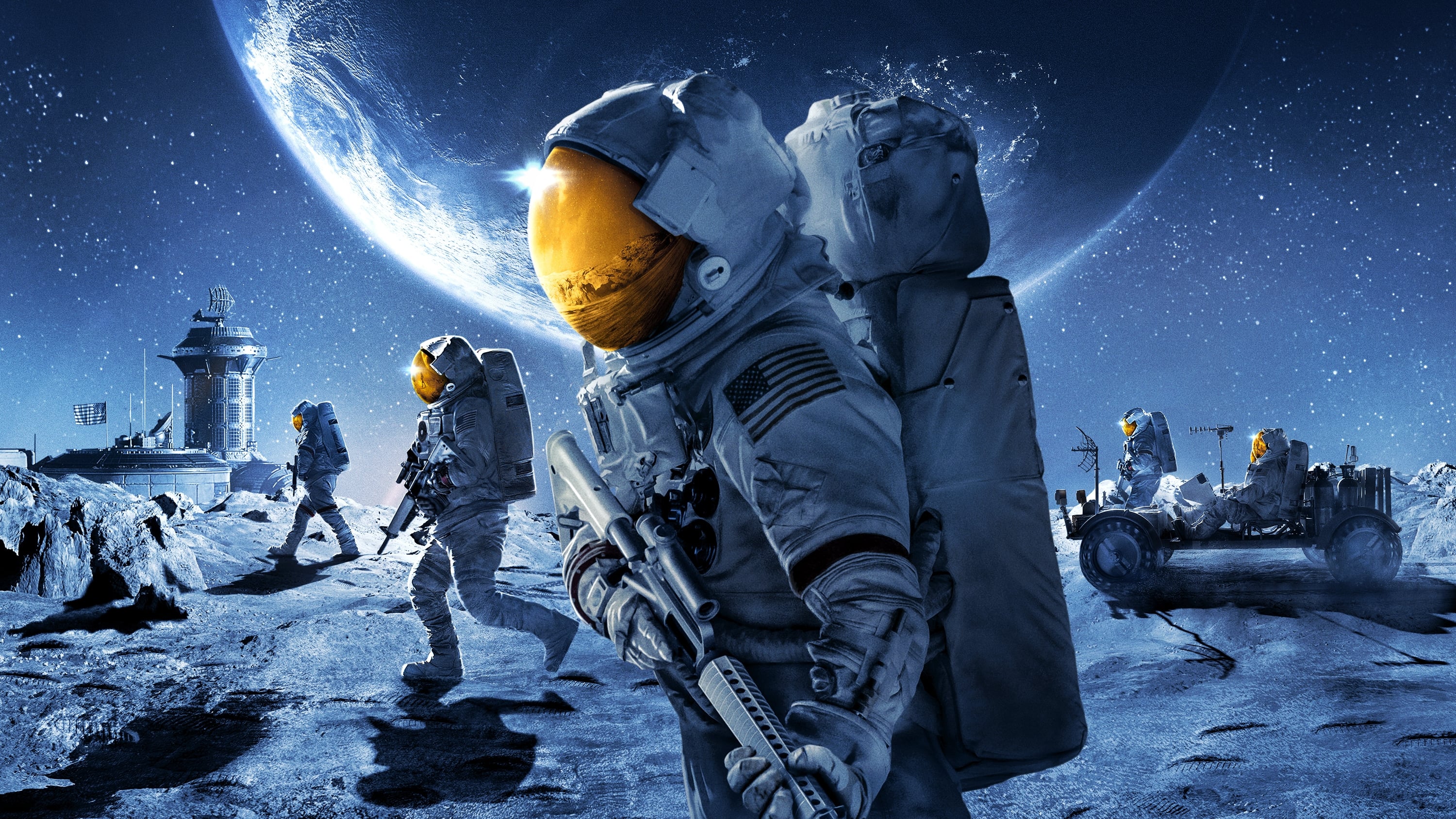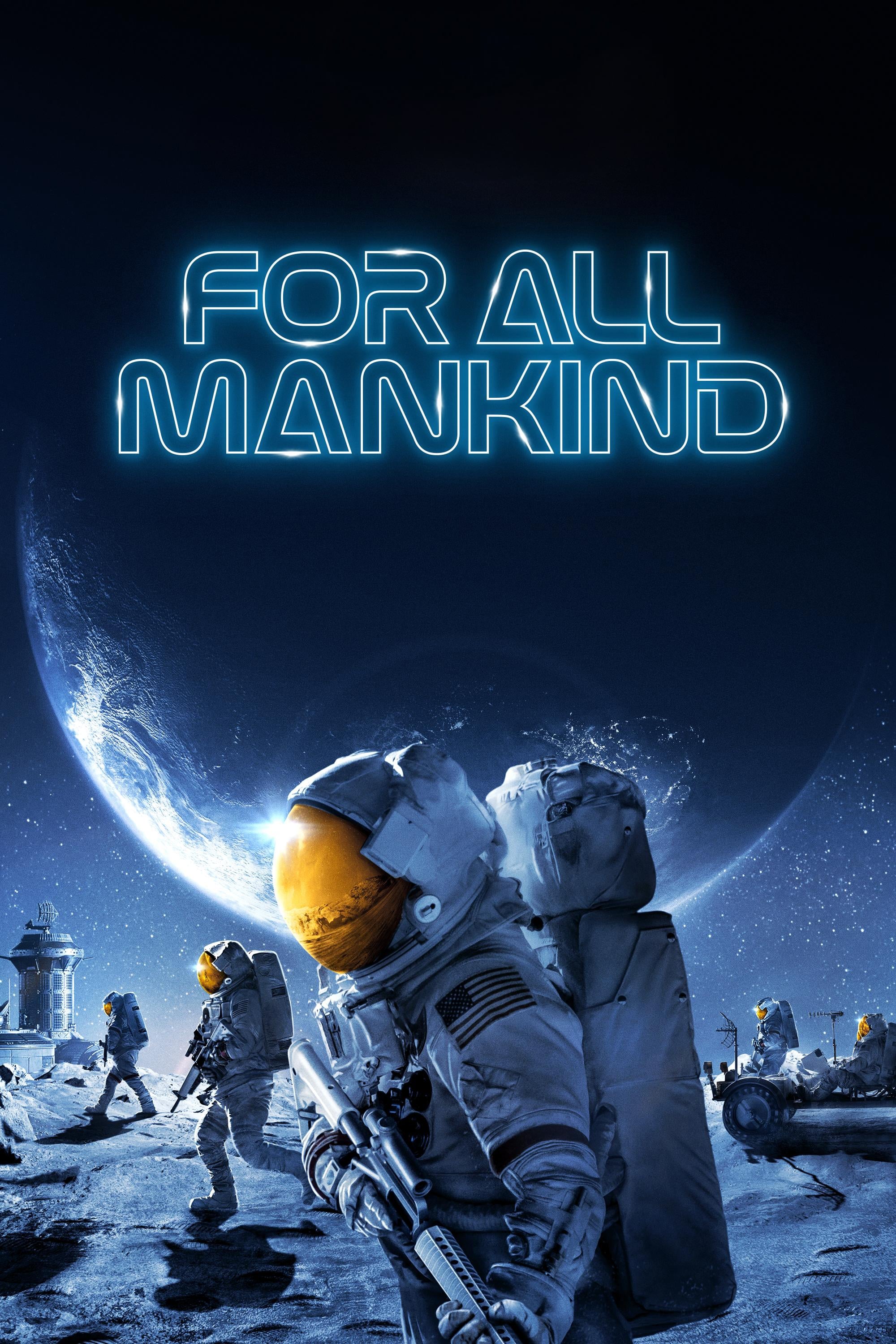Have you ever stopped to think about how different things might be if one big moment in history took a different turn? It's a fun thought experiment, isn't it? Well, imagine a world where the global space race never really stopped, where the push to reach for the stars just kept going, and going, and going. That, in a way, is the captivating idea at the heart of for all.mankind, a truly fascinating television series. It’s a show that takes a very familiar historical event and flips it on its head, inviting us to see a whole new version of humanity's journey into space.
This thrilling "what if" take on history, created by Ronald D. Moore, Matt Wolpert, and Ben Nedivi, and produced for Apple TV+, really grabs your attention. It starts with a simple, yet profound change: what if the Soviet Union got to the Moon first in 1969? So, this single event sets off a chain reaction, creating an alternate version of history that feels both familiar and incredibly fresh. It’s about how that one shift would change everything, from technology to politics, and even the everyday lives of people.
The series, you know, does a wonderful job of dramatizing this alternate reality. It brings in characters like Wrenn Schmidt, Joel Kinnaman, Krys Marshall, and Cynthy Wu, whose lives become intertwined with this never-ending space competition. It's not just about rockets and moon landings; it's about the people who make it happen, their hopes, their struggles, and the very human stories behind the grand scientific endeavors. It's, like, a really personal look at something so huge.
Table of Contents
- The Core Idea Behind for all.mankind
- A Glimpse into the Alternate World
- The People Who Make It Real
- Why This Show Resonates So Much
- Looking Ahead to the Future of the Series
- Frequently Asked Questions About for all.mankind
- Joining the Conversation
The Core Idea Behind for all.mankind
The central premise of for all.mankind is, as I mentioned, a simple yet powerful one: what if the global space race never ended? This isn't just a small tweak to history; it's a fundamental change that ripples through decades. We usually think of the space race as having a clear winner and then, you know, kind of fading into the background of public consciousness. But here, the competition, the drive, the sheer will to push boundaries, it just keeps going. It’s a pretty compelling idea, isn't it?
This concept allows the show to explore a truly different kind of future, one where humanity's focus on space exploration remains a top priority. It's not just about who lands where first; it’s about sustained presence, building bases, and really settling into space. The series suggests that if the stakes remained high, our advancements in space would be much, much faster. It's a very thought-provoking way to consider how progress works.
So, the show imagines a world where the constant push from a rival nation keeps everyone on their toes. This continuous rivalry, you see, acts as a powerful engine for innovation and ambition. It's a bit like a constant challenge that forces humanity to reach higher, faster, and further than we did in our own timeline. It's a rather inspiring vision, actually, despite being rooted in a competitive spirit.
A Glimpse into the Alternate World
The series begins with that pivotal moment in 1969 when the Soviet Union beats the United States to the Moon. This single event, you know, immediately shifts the entire narrative. The initial shock and disappointment in America quickly turn into renewed determination. The show then takes us through various decades, showing how this altered history impacts not just the space programs but also broader society.
We see, for example, how women and minorities play a much more prominent role in the space program earlier than in our actual history. The desperate need for more astronauts and engineers means that traditional barriers break down faster. This is, you know, a very important aspect of the show's alternate reality, adding layers of social commentary to the scientific advancements. It’s quite a powerful message, really.
The technology, too, progresses in interesting ways. Without the space race ending, there’s a continuous investment in rocket science, lunar bases, and eventually, missions to Mars. It’s a very detailed and believable portrayal of how different our world might look with a sustained focus on space. The show does a great job of making these changes feel organic and logical within its own set of rules.
The People Who Make It Real
While the grand scope of the alternate history is a major draw, it's the characters who truly bring for all.mankind to life. The series features a talented group of actors, including Wrenn Schmidt, Joel Kinnaman, Krys Marshall, and Cynthy Wu, among others. They portray the astronauts, engineers, politicians, and their families, all navigating this ever-changing world. It's very much a human story, you see, despite the cosmic backdrop.
Joel Kinnaman plays Edward Baldwin, a skilled but often troubled astronaut whose career takes a very different path in this alternate reality. His personal struggles and triumphs are a central part of the story. Wrenn Schmidt plays Margo Madison, a brilliant engineer who rises through the ranks of NASA, facing challenges and making tough decisions. Her journey is, in a way, a highlight of the series.
Krys Marshall portrays Danielle Poole, one of the first African American women to become an astronaut, breaking significant barriers in this timeline. Cynthy Wu plays Kelly Baldwin, Edward's adopted daughter, who eventually follows her own path into space. These characters, you know, represent the hopes, dreams, and sacrifices of those pushing the boundaries of human exploration. Their personal stories are what really make the show resonate.
Why This Show Resonates So Much
The appeal of for all.mankind goes beyond just its clever "what if" premise. It taps into a deep human fascination with space, exploration, and what we could achieve if we truly committed ourselves. The show, you know, manages to be both incredibly optimistic about humanity's potential and unflinchingly honest about the challenges and sacrifices involved. It’s a very balanced perspective, I think.
Critics and audiences, too, have responded very positively to the series. For example, Season 1 on Rotten Tomatoes has received strong reviews, staying updated with critic and audience scores today! This indicates that the show really connects with people who enjoy well-crafted science fiction and historical drama. It's not just a show about space; it’s about human nature, ambition, and resilience.
The series is, in some respects, a reminder of what collective human effort can achieve when faced with a grand challenge. It explores themes of perseverance, innovation, and the constant push for progress, even when things get tough. It's a very inspiring watch, especially for anyone who has ever looked up at the night sky and wondered what else is out there. It really makes you think about possibilities.
Looking Ahead to the Future of the Series
Fans of for all.mankind have a lot to look forward to. What to expect from the fifth season of for all mankind on Apple TV+, officially announced earlier this year along with a new spinoff, is a big topic of conversation. This news, you know, really shows the confidence Apple TV+ has in the series and its ongoing story. It's exciting to think about where the narrative will go next.
The announcement of a new spinoff series also suggests that the world of for all.mankind is expanding even further. This could mean exploring different characters, different aspects of the alternate history, or perhaps even entirely new timelines within this universe. It's, like, a testament to the richness of the story and the creativity of its creators. The possibilities are, well, pretty vast.
Staying updated with these developments is pretty easy, with reviews, ratings, and trailers for for all.mankind readily available. The show has built a very dedicated following, eager to see how this alternate history continues to unfold. It’s a series that keeps you guessing, always presenting new challenges and intriguing plot twists. So, yeah, the future looks bright for this show.
Frequently Asked Questions About for all.mankind
Here are some common questions people often have about the series:
1. What is the main premise of for all.mankind?
Basically, for all.mankind imagines a world where the global space race never ended. It starts with the Soviet Union beating the U.S. to the Moon in 1969, which then dramatically changes the course of history, leading to continuous space exploration and technological advancements. It's a very different version of what happened after that first Moon landing.
2. Where can I watch for all.mankind?
You can watch for all.mankind on Apple TV+. They offer a 7-day free trial, and then it's $9.99/month. It's their original series, so that's the only place to find it. It's pretty convenient, actually, if you have an Apple TV+ subscription.
3. Has for all.mankind been renewed for another season?
Yes, for all.mankind has been officially announced for a fifth season. Also, there's a new spinoff series that was announced along with it. So, fans have a lot more story to look forward to, which is pretty exciting news. It seems like the story is far from over.
Joining the Conversation
If you're someone who loves a good story that makes you think, or if you're just fascinated by space and alternate histories, for all.mankind might be just the show for you. It's a series that really makes you consider the paths not taken and the incredible potential of humanity when pushed to its limits. It's, you know, a very engaging experience that sticks with you long after the credits roll.
The show’s ability to blend historical accuracy with imaginative speculation is, in some respects, truly remarkable. It doesn't just tell a story; it builds an entire world that feels incredibly real and lived-in. So, if you're looking for something to watch that's both entertaining and thought-provoking, this one comes highly recommended. You can discover more about the show and its reception by checking out its page on Rotten Tomatoes.
Ultimately, for all.mankind isn't just a science fiction drama; it’s a hopeful vision of what could be, a reminder that our greatest achievements often come from facing our biggest challenges. It’s a story that keeps us looking up, wondering what’s next, and perhaps, just a little bit, wishing our own history had taken a similar turn. It’s a very compelling watch, honestly.



